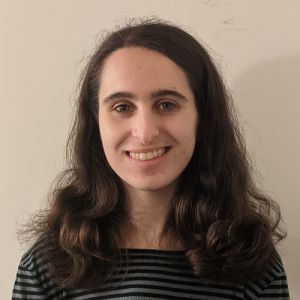
NASA challenges students to dream up experiments for suborbital rocket launches
The TechRise Student Challenge is open to students from grades 6-12 through Nov. 3, 2021.
NASA is looking for student teams to enter its TechRise Student Challenge, which tasks students in grades six through 12 with designing experiments to launch on a suborbital spaceflight. The initiative aims to familiarize students with the design and testing process that NASA researchers use.
"Central to NASA's mission is inspiring and educating the workforce of the future. The research areas students can explore through TechRise are endless, from technology to better understand our planet to innovative systems for deep space exploration," NASA Administrator Bill Nelson said in a statement.
A team of at least four students and an educator from a public, charter or private school can submit a proposal for an experiment to fly on one of two types of suborbital flight (in which the vehicle will reach space but not orbit the Earth) — a suborbital rocket or a high-altitude balloon.
The 57 winning teams will each receive $1,500 to build their experiment and a reserved spot to test it on either a rocket or balloon. The rockets include Blue Origin's New Shepard, Up Aerospace boosters and Raven Aerostar vehicles. Each team will also have access to expert help from Future Engineers, the organization administering the contest.
Experiments utilizing rockets will be exposed to and will measure the impact of microgravity, or weightlessness, for three minutes during the flight. Those flying on balloons will remain at a height of 70,000 feet (21 kilometers) for more than four hours, allowing students to perform experiments involving images of Earth's surface or the impact of invisible phenomena like atmospheric pressure.
Proposals must be submitted via the Future Engineers website by Nov. 3, 2021. NASA will announce winners in January 2022, and experiments are planned to launch in early 2023. Students can also register for a virtual field trip hosted by NASA and Future Engineers on Sept. 24, which will provide more information and project ideas.
NASA is also seeking volunteer judges for the challenge with expertise in engineering, atmospheric research, and space. Interested adults who are U.S. residents can apply here.
Breaking space news, the latest updates on rocket launches, skywatching events and more!
Follow Rebecca Sohn on Twitter @RebeccaSohn2. Follow us on Twitter @Spacedotcom and on Facebook.

Rebecca Sohn is a freelance science writer. She writes about a variety of science, health and environmental topics, and is particularly interested in how science impacts people's lives. She has been an intern at CalMatters and STAT, as well as a science fellow at Mashable. Rebecca, a native of the Boston area, studied English literature and minored in music at Skidmore College in Upstate New York and later studied science journalism at New York University.

